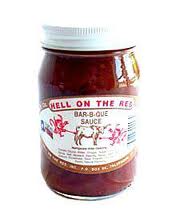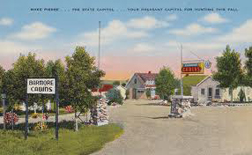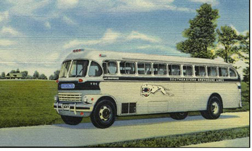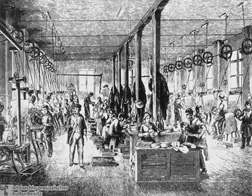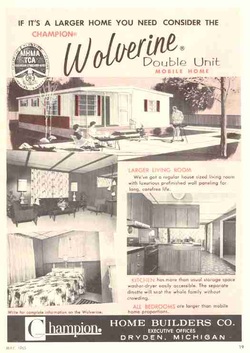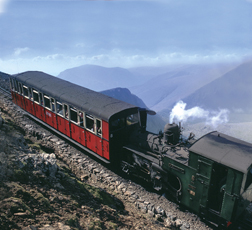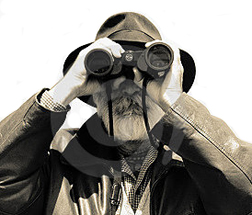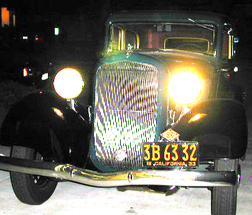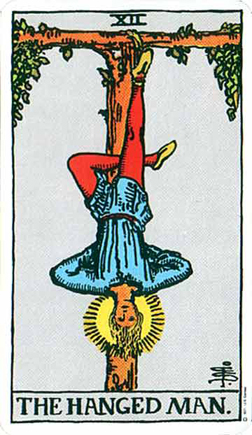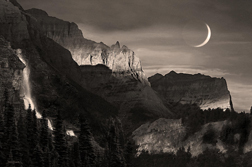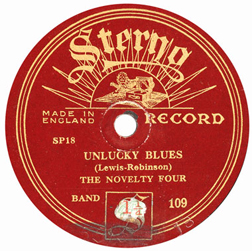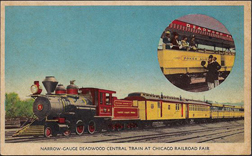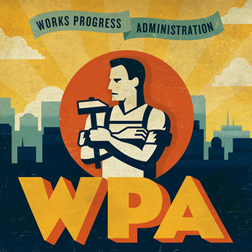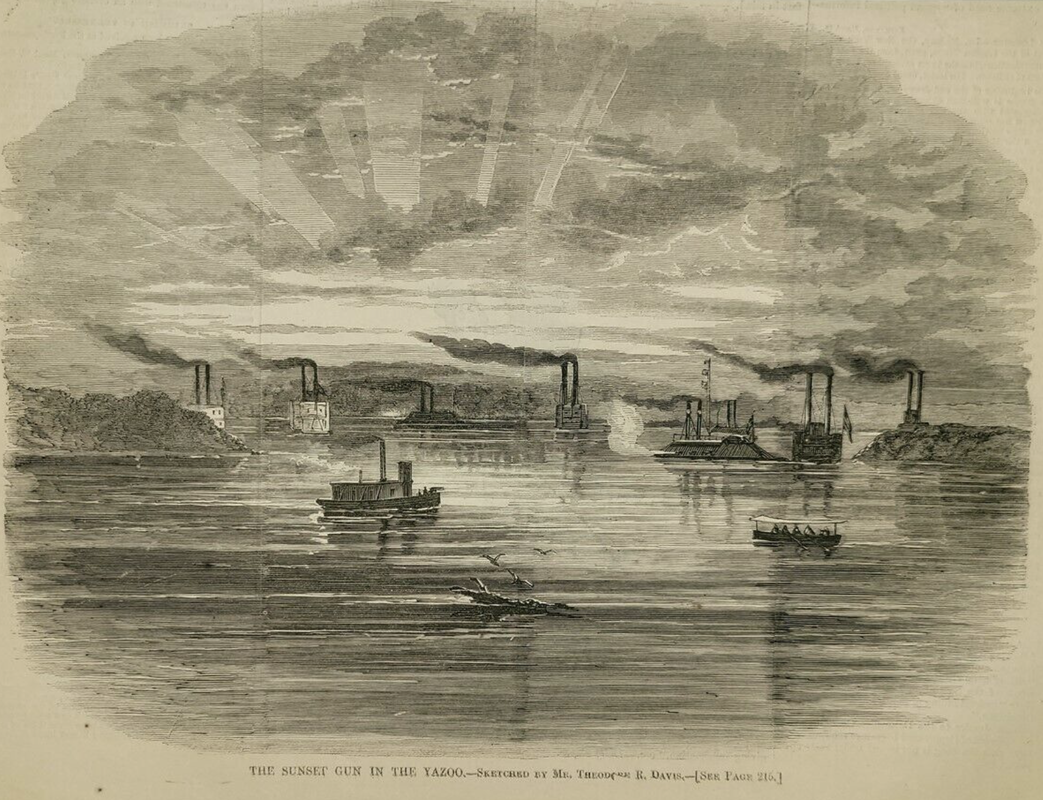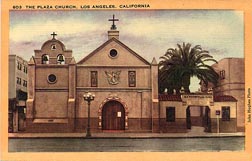Doublewide!
|
1. Lone Star Special
copyright Leon Fullerton When I picked up that woman, I was pulling a load,
forty-two days over the road. All she had, she had in her hand. Stopped at a cafe on the Rio Grande. She had a Lone Star Special, hell on the red, pay no attention what the little man said. She had a splash of gravy and a heap of greens. Ain't had a square since New Orleans. I said, "I know we only met a couple hours ago, but baby, you know how these things go. I knew it was love when you hit my eyes." She said, "A double cheeseburger and a side of fries!" She had a Lone Star Special.... I said, "Now I know what true love takes. I knew it ever since I hit the brakes! I got cash to flash. What's mine is yours." She said, "Let's see how that coffee pours." She had a Lone Star Special.... "Ham and biscuits, chicken and rice, if that pie's any good, man, I've having it twice. Slab of bacon and a chocolate moo, flapjacks stacked up higher than you." She had a Lone Star Special.... I finally had to leave her there, chowing down, jawing with a fry cook in that no-horse town. But sometimes on the highway in the dead of night I can still hear her shout with all her might: "Gimme a Lone Star Special..." |
Fullerton wrote this after a pig-roast wedding gig in Telephone, Texas, ancestral home of Hell on the Red Barbeque Sauce, for a hitchhiker he'd brought with him. She told him she could sing, and it turned out she was right.
Leon had romantic designs, but he lost her later that night to a talented (or at least relentless) dishpan banger she met at Texas's fine old wee-hour honeymoonus interuptus tradition, the shivaree. Live at Riverside ParkRecorded at Riverside Park, Westbrook, Maine, July 2016.
Featuring: Bob Barton, Catfish Brown, Paul Hunt, Jim Katsiaficas, Sue Silvestri, and Waterford Slim |
_______________________________________
|
2. Nightfall at the Bide a Wee Inn
copyright Leon Fullerton Down by Black Crater Lake
out on Highway 17, there's a stand of scruffy pine trees with some shacks stuck in between. Quebec and Alabama tags, Iowa and Dade. Kids with poison ivy chase each other in the shade. Some townies are unwinding from a hard stretch at the mill. A solid month of overtime won't start to pay this bill. Baste up on bug juice by the gallon, swill salvation by the quart at the Bide a Wee Inn cozy guest cabin court. Them old hog-riding brothers got a gleam upon their shades: up from Crystal City, down from one too many raids. The lazy crunch of gravel, ice cubes dancing in a glass tintinnabulate the murmur of the moments drifting past. A couple hours creep by, that big pink eye sinks down, music's growing louder, like a rumble from the ground. Radios are blowing hot, like sirens in the night. Someone looking for some loving, someone's cooking up a fight. A motorcycle mutters with a sychopated cough. Someone wants to get it on, someone's trying to get off, and the slamming of the screen doors in the sultry evening air punctuates the meditation of them punks in their Bel Aire. TVs are glowing bluer than a Tin Pan Alley sax: office grunts in their tank tops paying hard cash to relax. The stink of sweat is wafting from the highway to the lake. Someone is on the hustle, someone else is on the make. There's a radio evangelist in cabin number nine with a sacrament more potent than the angel is divine. Someone detonates a pop-top, someone's yanking someone's chain, someone's dog has found some road meat, someone's ex has hitched to Maine. There's a glint of summer lightning in the mountains 'cross the lake, and the sullen moan of thunder, and a chill no one can shake. There is no wind in the willows, but a prophesy of rain, like a sudden premonition, like the fear you can't explain. And night, it settles slowly, just like ether on the brain, and one by one, the lights snuff out, just one or two remain. A diesel in the distance rumbles furtively as sin and spurns the winking neon of the Bide a Wee Inn. |
”Must've been maybe in the Dakotas or Minnesota or the flat part of Montana, the Missouri Breaks, I dunno. My van broke down near one of those cabin resorts and I spent a couple of nights there. Fixed some screen doors and some plumbing and whatnot and got some meals out of it. Slept in the van. There was no vacancy.
“The place jumped. Middle of nowhere, folks having a great time. Cookouts, hammocks, kids playing ball, beer disappearing like truth on tax day. The song is just sort of a bunch of snapshots. Always been fond of it. It’s a crowd-pleaser. Everyone knows what I’m talking about.” So wrote Fullerton in his unfinished memoir, Ugly Roomer. New York Daily News music critic Lillian Roxon, however, had a different take on the 1980 tune: “It’s not punk. It’s not New Wave. It’s closer to rap than anything else on the airwaves today. It takes up where Woody Guthrie’s ‘Talking Blues’ leaves off — and that left off a long time ago. Whatever the going style, we can rely on ‘Neon’ Leon to hoist the Jolly Roger and ram it amidship.” Rolling Stone’s Peter Travers took the long view: “Fullerton’s body of work is a sort of an Atheist’s Bible set to the beat of a vanishing America. Like most of his songs, once you start making substitutions here and there, it's impossible stop. Make his lake the Sea of Galilee and you begin to imagine a Breugelian landscape, an alternate Bible story teaming with Pharisees and Moabites and false prophets and sinners and saints. “Diesel exhaust is Fullerton’s holy smoke. Saints drive his tractor trailers. His angels drive motorcycles. His sinners drive cars: their exhaust is our exhausted store of lies, deceptions, and alibis. Radios are heaven, TVs are hell, and barrooms are the big waiting room in between. “By denying God, Fullerton forces the burden of holiness on the rest of us — what Mark Twain, one of Fullerton’s heroes, called ‘the damned human race.’ If Jesus died for our sins, Fullerton is out there living for them.” Fullerton’s daughter Gwen, who keeps clippings about her father in a Buster Brown shoebox, said when we probed her about Roxon’s and Travers’ comments, “It’s a good song, if you go in for that retro country bluesy twang-banger post-folk, pre-'alt' thing. Roxon nailed him — not in the biblical sense. Dad’s a pirate, all right. But if Travers really wants to understand him, he needs to dip less into the Bible and more into whatever stash of psycho-active joy juice accommodates a latter-century hip-wa-zee lifestyle. And a liquor cabinet. And if he really wants to do it Dad's way, it'll be anyone’s booze but his own.” |
_______________________________________
|
3. Swamp Dog
copyright Leon Fullerton Got a one-way ticket
on a Greyhound dog to ride, got a one-way ticket on a Greyhound dog to ride. Destination's predetermined: it's win, place, show, or die. She's a mean old swamp dog, but I sure do love to make her howl, she's a mean old swamp dog, but I sure do love to make her howl. Stray cats steer clear when my baby starts to growl. Bye-bye, bye-bye, my darling, I sure do hate to see you cry, bye-bye, bye-bye my darling, I sure do hate to see you cry. Take my bible and my bottle, my pistol and my peace of mind. Take my bible and my bottle, my pistol and my peace of mind. |
Fullerton, holding forth on the topic of grace under fire, once said to New York song prodigy Laura Nyro, “Neil Sedaka got it all wrong. Breaking up ain’t hard to do. What’s tricky is breaking up in one piece.”
Live at Riverside ParkRecorded at Riverside Park, Westbrook, Maine, July 2016.
Featuring: Bob Barton, Charlie Bernstein, Paul Hunt, Jim Katsiaficas, Sue Silvestri, and Waterford Slim |
_______________________________________
|
4. Called In Well
copyright Leon Fullerton It ain't no sign of weakness
if your job is making you sick, and it ain't no sign of genius to know what makes the company tick. Don't know how I got in so deep, I got some money but they got my health, and I never got enough to get out of here to get myself to something else. So I called in well this morning, ain't gonna kill myself for a buck. I called in well this morning, used to think I was born for real bad luck. So I called in well this morning, and it might sound a little bit strange, but I called in well this morning, time to make my bad luck change. I bet you think you're just another working stiff, but you'll be stiffer in a cold pine box. Bet you think you're gonna sit right up the minute that the company knocks. They got a lot of folks thinking they're so small, don't matter if they live or drop. They got a lot of folks getting all used up to keep the company men on top. So I called in well . . . . Honest work for honest pay, ain't that how it's supposed to be? But now Lucy's in a iron lung and Frank's got a artificial knee. I got a little clue I'm gonna share with you. Who says good advice don't come free? You can wear out your parts before retirement starts, or you can call in well with me. So I called in well . . . . |
Fullerton has held a lot of jobs, none for long. While living outside Santa Fe, he dug a row of fence posts for novelist John Nichols. Nichols credits Fullerton with the concept of calling in well, which the author later expanded upon at length in Even Cowgirls Get the Blues.
|
_______________________________________
|
5. Doublewide!
copyright Leon Fullerton Red bird nesting in a Mercury,
the doublewide life is the life for me. Doublewide kids, doublewide wife, nothing makes a man as happy as a doublewide life. Twister rolling down on a doublewide town, Lord'll pick you up and put you back down. Doublewide moon shining down from above, I'll take a dose of double trouble and a doublewide love. Doublewide! Doublewide! Satellite dish on a nothing-down deal, a doublewide life is a life that's real. Got a doublewide boss and a doublewide bong, a doublewide smile and a doublewide song. Doublewide! Doublewide! Red bird nesting in a Mercury, the doublewide life is the life for me. Doublewide! Doublewide! |
Despite many desultory attempts and a few reasonable, if short-lived, facsimilies, Fullerton had limited actual first-hand experience with domestic bliss. Heavy on the domestic, light on the bliss.
But as he said to biographer Rex Geronimo, “The hell, Boswell. Plenty of times I’ve honored it in the breech.” “Doublewide!” is undoubtedly about Fullerton’s nephew Cameron Gunn, who occasionally (as occasionally as Cam's wife Louise would allow) put up Fullerton for as much as a week at a time. “The moral of this one,” Fullerton said in the liner notes to Boca la Luna, “is that the settled life is the good life. Be it ever so humble, there’s no place like a Champion Wolverine doublewide.” |
_______________________________________
|
6. Trunk Line to Heaven
copyright Leon Fullerton Went down to the water
to wash away my sins — the good Lord maketh, and the good Lord breaketh, but the devil always wins. I can hear that whistle blowing, and my feet say, “Don’t walk, run.” It’s the trunk line to heaven! Hallelujah! Kingdom come! Now, if you need redeeming from a life that’s rife with sin, it’s only one quick whistle stop, whatever shape you’re in. On the trunk line to heaven, get together one more time, praise the lord and pass the Bible, leave old Satan down the line! On the trunk line to heaven, you just carry on what you need. Won’t blow no smoke or cinders, safe at any speed. Saint Stephen swings the lantern, Saint Bridget rings the bell, they’re passing ‘round the halos, they’re here to wish you well. |
From liner notes of The Gospel According to Leon:
“I've always gotten a big kick out of those church songs about how great it is to be dead. Some day I'm gonna hear this one coming out of a church while I'm walking by, and I'll drop dead right then and there, the words wafting over my mortal shell, my happiness complete." In concert, he used many different names of saints in the last verse. In the Crawdaddy interview, he described himself to publisher Paul Williams as an equal opportunity hagiographer. "Trunk Line to Heaven" is the official song of the First Church of Latter Day Cowboys, Reverend Leon K. Fullerton, founder, arch-shaman, and soul proprietor. |
_______________________________________
|
7. This I Gotta See
copyright Leon Fullerton You called from Albuquerque,
you was coming home to stay, said you couldn’t live without me for another day. Well, shug, I planted floodlights up and down the drive, 'cause I wouldn't want to miss the sight the minute you arrive, 'cause this I gotta see, you coming back to me, you always say you're through with running 'round. Yeah, this I gotta see, you coming back to me, when hell is freezing up, you'll still be burning down the town. Got that message from Tacoma you left on my machine, said you was hitching home, and you would call from Abilene, but you were intercepted by some fancy-talking guy. If seeing is believing, could you teach eyes to lie? 'Cause this I gotta see.... I get your faxes and your e mail, express mail certified, you scared me with that telegram -- thought sure somebody died. Been stocking up on VCR tape, color film, besides, 'cause my buddies won't believe it 'less I show 'em all the slides, 'cause this I gotta see.... Got network news teams camped here to record the rare event, them jet-set paparazzi types just think you're heaven-sent. Got satellite transmission units tearing up the lawn, bought infrared binoculars, and put bifocals on 'cause this I gotta see.... When hell is freezing up you'll still be burning down the town. |
We have scant idea who this one is about. The only time Fullerton owned a house with a lawn and driveway was in Franklin, Tennessee, a Nashville suburb, in 1980 and 1981, when he was ghost-writing free-lance for three or four record companies. He was also enjoying a rich social life, and no one recalls him mooning over an errant love at the time.
His daughter, Gwen Fullerton, speculates: “Mom says he had everyone on the street over all the time. He probably wrote it to cheer up one of his sad-sack neighbors.” |
_______________________________________
|
8. Ain't She a Caution
copyright Leon Fullerton I have seen the city,
where the streets are paved with light, and I have met a gal or two could make a man ignite. I could've took the high road if I'd just knowed up from down, but the path of least resistance brought me straight to Heartache Town. Ain't she a daydream, still on my mind? Ain't she a caution? Ain't she a friend of mine? It ain't her eyes that haunt me whenever I'm alone, it ain't her lips that whisper 'bout the things I might have done, it ain't the silent memory of why I chose to go to meet my own betrayal on every face in every door. Ain't she the headlights when the moon don't shine? Ain't she a caution? Ain't she a friend of mine? I know I ain't the first damn fool to leave a love behind, to throw away what matters for what I will never find, and one too many flophouse nights is more freedom than I need, so I'm lacing up my walking shoes, see where they might lead. Ain't she the jackpot, the one I left behind? Ain't she a caution? Ain't she a friend of mine? Ain't she the jackpot, the one I left behind? Ain't she a caution? Ain't she a friend of mine? |
"Ain't She a Caution" was a sequel to "Hot Springs," continuing his telling of his uncle Gustavius Gunn's 1920s walk on the wild side.
Fullerton particularly remembered his uncle's practical advice on the subject of gambling: "If you join a poker game and can't figure out who's about to get fleeced, be prepared to see a shorn sheep next time you look in the mirror." Gunn's two-month ramble earned him a black eye from Arnelle, his wife of twenty years, and a short but instructive jail term for bigamy. And it cured him of his wanderlust. He put it to Fullerton this way, Thanksgiving, 1942, in Baker, California, at the apartment the Fullertons had landed in after their Dustbowl sojourn: "It mighta been lust, but was never no Wanda had anything to do to do with it. No matter what Arnelle says." |
_______________________________________
|
9. Shoot the Moon
copyright Leon Fullerton I met you at a diner,
you were telling drunks their fortunes for the price of a burger and fries. You said you'd gladly tell my future, I said I'd gladly pay to hear some lies. You shuffled up your deck of cards, I said, "Madame, come on, deal me in." You said, "I know something 'bout the Hangéd Man, and I know something 'bout the shape you're in." You said, "Time will always tell on you, you'll face the music soon. I was born to cut the cards. You would die to shoot the moon." Running to Samarra via East Las Vegas, met a blue-eyed seer in red-eye bar. She said I had a tragic lifeline. I said, "No, that's just an old cantina scar. Now tell me more about tomorrow, don't rake up my sordid past. Is there a fate that I can borrow? The one I got ain't long to last." She said, "Time will always tell on you, you'll face the music soon. Some were born to cut the cards, you would die to shoot the moon. Time will always tell on me, I'll face the music soon. You were born to cut the cards, I would die to shoot the moon. I would die to shoot the moon. I would die to shoot the moon. I would die to shoot the moon. |
Fullerton invested in fortune tellers the way people whose unemployment benefits have run out invest in scratch tickets. He proposed to one he encountered at a coffee shop in Nashville in 1980, but she refused — not, he maintained in his unfinished memoir, because they’d only just met, but because in her glimpses of his future she divined no trace of herself.
("That's how I knew she was a quack," his memoir continued. "I saw her just as plain as a sunny day in Flagstaff. Cat [his sister Catherine] tried to tell me that just proves the little fakir was no faker. I told Cat all it proves is you never goddam know.") He met another psychic in an East Las Vegas bar, One-eyed Jack's, in the mid-sixties. He paid her full boat for a reading, but she found him argumentative. He’d insisted that his “tragic lifeline” was a knife wound he’d acquired subduing a sociopathic redneck who’d insulted one of Fullerton’s United Farm Workers companions outside a saloon. Somerset Maughm's "Appointment In Samarra" is Fullerton's favorite telling of the ancient fable of Samarra, the town fools flee to, futilely, to elude Death. It was also the name of Fullerton’s New Mexico ranch, fondly remembered in his album Chili Today, Hot Samarra. |
_______________________________________
|
10. U.S. 2 (Don't Go Nowhere)
copyright Leon Fullerton Me and her been making good time,
big moonrise, Montana line. Burning hot tar through the Missouri Breaks, gonna find out how long it takes. Got no place left, and we don't care, this U.S. 2 don't go nowhere. Did sixty days in a county can. Don't bluff the judge when you're stuck in Spokane. Did sixty more up in Pend Orielle. Guess they all just think that way. Well, I got a girl and a bottle of rye - who says a good old boy can't fly? Robbed a pawnshop man back in Coeur d'Alene -- without a diamond ring, ain't love in vain? Got a fresh sealed box of triple-aught shells, got one shot at heaven and a dozen at hell. Someday soon might glimpse the truth, someday soon might see Duluth. When I met Lu Anne, I was on my knees, guess love ain't always just a social disease. Watched our people scrape and save for money down on an early grave. Got no complaints, life ain't fair, and U.S. 2 don't go nowhere. |
Best known as the A-side of the prized 45 known to collectors as The Duluth Single*, “U.S. 2” recounts the reckless journey of Bradley and Luanne Summerville, whom Fullerton bought drinks for in Rugby, North Dakota, at the height of their celebrity.
(Such as it was. The two young outlaws were admirers of the murderous pair “Mad Dog” Charlie Starkweather and Cari Ann Fugate, fictionalized in the movies Badlands and Natural Born Killers. Prone though they were to wave guns in store clerks’ faces and hurl crude and colorful threats, however, no killings were ever attributed to either of them. In fact, people who encountered them - even some of their crime victims - tended to describe them as "sweet kids," "little scamps," "harmless,""cute," and "nothing to get in a twist about." The Coeur d'Alene pawn broker mentioned in the song told investigating officers after the robbery that he didn't take young Bradley's shotgun away because he "felt kinda sorry for the little feller.") The Summervilles (there’s no documentation of their union, but Fullerton, unlike the press, was willing to give them the benefit of the doubt, and so, so are we) were robbing their way to Duluth, their destination only because Luanne thought she had a distant cousin there who worked in an Oldmobile/Cadillac dealership’s sales department and, she felt, might reasonably be expected to give them well-paying jobs. * The B-side, “He’s There,” is based on news reports of Bradley’s subsequent unsolved murder. It can be found on the Fullertons' Tunnel Vision.
RIP, Brad. |
_______________________________________
|
11. Sterno Sunrise
copyright Leon Fullerton (instrumental) |
Inspired by a popular seventies Eagles song and a popular seventies cocktail. From Fullerton's unfinished and unpublished cookbook of hobo cuisine, Vagabond's Viands: Vital Vittles for the Vagrant, Flagrant, and Fragrant:
Sterno Sunrise Ingredients:
Serve chilled. Or put a coat on. Serves nobody. |
_______________________________________
|
12. Blues for Dinah
copyright Leon Fullerton Next stop Deadwood, right on time,
hear that whistle blow. Dinah's shouting for the captain, but he don't come 'round no more. I met her at the roundhouse, I met her on the square. Was it simple desperation that always brought me there? She said, "Welcome back to Deadwood, where you always know your friends. It starts out just past Blindman's Bluff and winds up where it ends." She said, "Welcome back to Deadwood. You wasn't gone so long. Deep down you must've missed us, or you wouldna wrote that song." All roads lead to Deadwood, so pack your bags and pray. You start out on the fast track and wind up in the WPA. I'd sent you a nice long letter, but the mail train's come and gone. I'd send you back to the Lighting Shack, back where you belong. She said, "Welcome back to Deadwood.... "Deep down you must've missed us, or you wouldna wrote that song. Deep down you must've missed us, or you wouldna wrote that song." |
After guitarist/guru Jerry Garcia’s death, the Grateful Dead withdrew to the studio, where the band continued its work with a number of lead guitarists. When they reemerged in 1998 as the Other Ones, Fullerton was heartened. “Blues for Dinah” was his official welcome-back statement to the reincarnated group, first performed at a coffee house in Mill Valley, California.
|
_______________________________________
_______________________________________
|
14. The End of the Line
copyright Leon Fullerton All you need's a little shelter,
all you need's a little place called home, all you need's a little sanctuary, all you need is one more chance back in San Antone. You've tried to keep a lid on wishful dreaming, the armies of the night are camped outside, all you need is one more little dollar to take a pint of Night Train for just one more little ride. It's the hundredth time you've searched your pockets, it's the millionth time you've searched you soul. Every time you look, you come up empty - seems like every pocket in your life has some kind of a hole. Maybe it's that bad batch of prescription that's left your nerves like severed power lines dancing in the dirt like Elmo's Fire. If only you could leave it all behind. Tell me what did you say you were hoping to find at the end of the day, at the end of the line? Tell me what did you say you were hoping to find at the end of the day, at the end of the line? Tell me, what did you say you expected to find? Just another day at the end of the line. |
"The End of the Line" was composed during Fullerton's stay at the state mental hospital in Camarillo, California.
Although Fullerton never met any of the Rolling Stones, Keith Richards, a long-time admirer (and one of only four people known to have a complete collection of Fullerton's vinyl 33s and 45s) sent him a card while he was being held for observation and evaluation. It was a Hallmark "Get well soon!" card whose original message Richards had altered, crossing out "well" and writing "out." Fullerton did, in fact, get out soon and penned another Neon Leon classic, "Texas Twelve-step" (track 8 above), to commemorate his liberation. |
________________________________________________________
"Take me back to the Black Hills that I ain't never seen." Ray Davies
"Take me back to the Black Hills that I ain't never seen." Ray Davies
